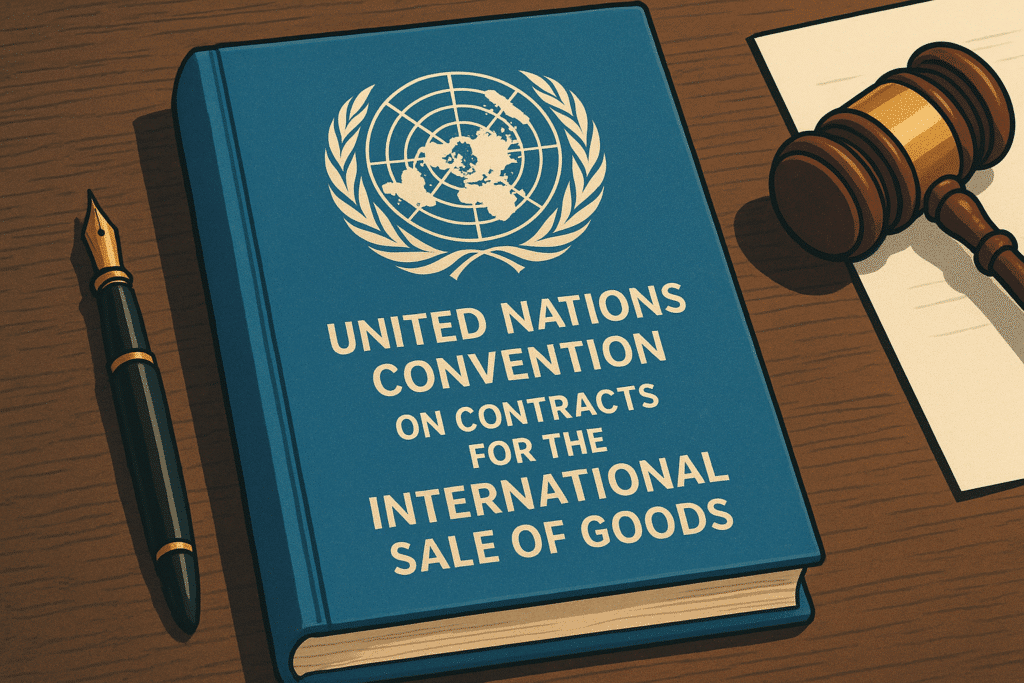Missed Opportunities in Great Lakes
In the 1994 film, Clerks, the main character works at a quick-stop grocery store in New Jersey. On his day off, he gets a call from his boss asking him to cover the shift of another employee. As he grapples with a stream of difficult customers during the course of this unexpected shift, he keeps…
Continue ReadingThoughts on the Respondent’s Brief in Great Lakes
In a prior post, I surveyed the facts, procedural history, and potential significance of Great Lakes Insurance SE v. Raiders Retreat Realty Co., LLC, an upcoming Supreme Court case about the enforceability of choice-of-law clauses in maritime insurance contracts. In a subsequent post, I shared some thoughts about the brief filed by the petitioner, Great Lakes Insurance SE (GLI). In this…
Continue ReadingDrawing Inferences from CISG Opt-Outs
The United Nations Convention on Contracts for the International Sale of Goods (CISG) and the Uniform Commercial Code (UCC) both supply rules to govern contracts for the sale of goods. The UCC applies to purely domestic transactions. The CISG applies to many international transactions. When a contract involves the mixed sale of goods and services,…
Continue ReadingThoughts on the Petitioner’s Brief in Great Lakes
In a prior post, I surveyed the facts, procedural history, and potential significance of Great Lakes Insurance SE v. Raiders Retreat Realty Co., LLC, an upcoming Supreme Court case about the enforceability of choice-of-law clauses in maritime insurance contracts. In this post, I offer some thoughts on the brief filed by the petitioner, Great Lakes Insurance…
Continue ReadingSome Thoughts on Great Lakes Insurance SE v. Raiders Retreat Realty Co., LLC
The U.S. Supreme Court will hear oral arguments in Great Lakes Insurance SE, Petitioner v. Raiders Retreat Realty Co., LLC during the 2023 Term. This case has the potential to change the way that federal courts evaluate the enforceability of choice-of-law clauses. Over the past few decades, these provisions have become ubiquitous. One study found…
Continue ReadingWaiving Choice of Law
When I teach Conflict of Laws, I tell my students that they must always perform a choice-of-law analysis when there is a conflict between the laws of two jurisdictions. This is sound advice for doing well on the final exam. It is not, however, strictly true. In fact, litigants waive this issue all the time….
Continue ReadingMicrosoft’s Dispute Resolution Provisions Are a Mess
The Microsoft Corporation (“Microsoft”) and its foreign subsidiaries buy goods and services from companies all around the world. To streamline the contracting process, Microsoft has drafted a purchase order that contains standard terms and conditions. This purchase order – viewable here – is used by Microsoft and its subsidiaries in 109 different countries. This agreement…
Continue ReadingThe Homeward Trend in Chinese Choice-of-Law Cases
One of the characteristics of transnational litigation is that there is generally more than one forum in which the suit may be brought. Although TLB focuses primarily on transnational litigation in U.S. courts, it can sometimes be useful to look at what is going on in other systems where litigation might instead be filed. A…
Continue ReadingSupreme Court Grants Cert in Admiralty/Choice-of-Law Clause Case
Earlier today, the Supreme Court granted cert in Great Lakes Insurance SE v. Raiders Retreat Realty Co. LLC. The question presented is whether, under federal admiralty law, a choice-of-law clause in a maritime contract can be rendered unenforceable if enforcement is contrary to the “strong public policy” of the state whose law is displaced. The…
Continue Reading


